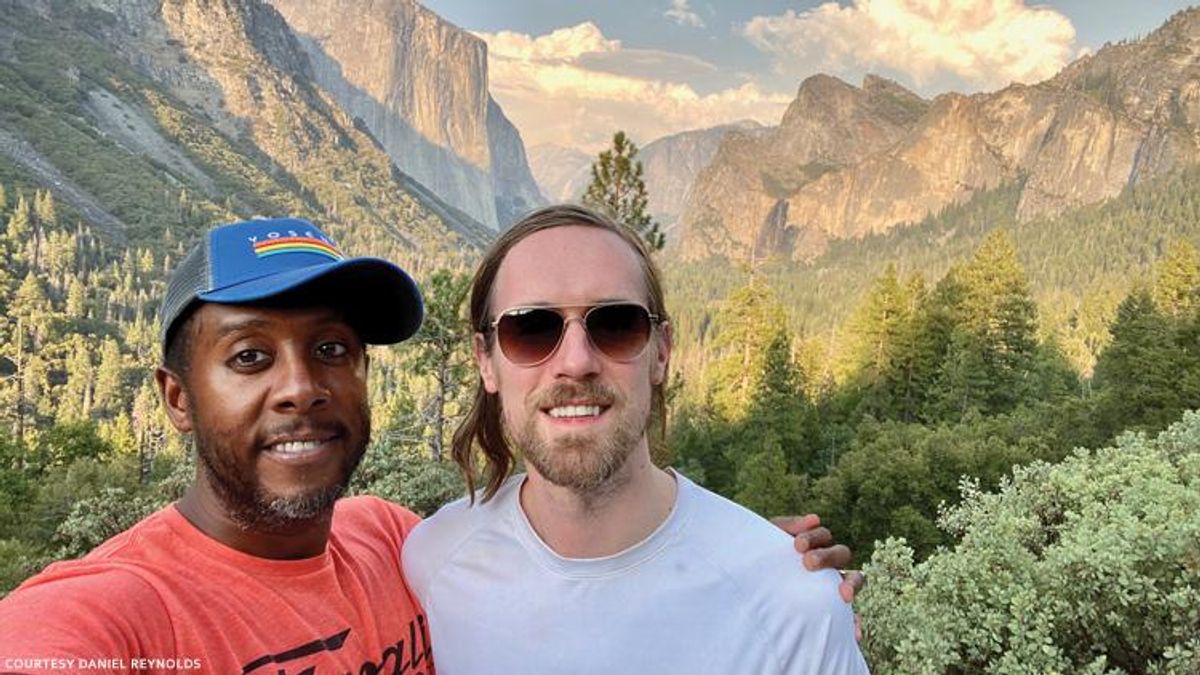My partner and I have never spent so much time in a car together as in 2020 -- nor seen as much of the great outdoors.
In our travels last year, we hiked the cactus-lined trails surrounding Scottsdale, Ariz. We witnessed the majesty of Yosemite National Park through the vista of Half Dome from Tunnel View. We journeyed to Joshua Tree and saw, for the first time, the strange, Seussian beauty of its eponymous plant. We even -- shocker -- went to our first nude resort in Palm Springs, Calif., although there was only one other couple staying there at the time.
But always on our adventures, a perplexing question arose of how much of our experiences we should share with our friends via social media. What were the new rules of boasting about travel in an era when many of our loved ones were either fearful to leave their homes due to the pandemic or prohibited by local restrictions from engaging in "nonessential travel?"
As the gay men who flew to Puerto Vallarta for the White Party learned during the holidays, there can be a severe backlash -- deservedly so -- to flaunting vacations involving a large group gathering. Posting about trips like this, especially by influencers, can be seen at best as tone-deaf and at worst as promoting dangerous behavior as death tolls mount, particularly in regions that may lack medical resources.
However, it seemed there could be a middle ground where an adventure could be shared publicly on Instagram and Facebook -- with certain caveats. After all, even those of us without large followings are microinfluencers, meaning that the actions we take can encourage our networks to do the same. Thus, modeling responsible behavior is essential when sharing of images or videos on social media.

First, the act of travel itself depends on the severity of the pandemic. If local guidelines say you're "safer at home" due to rising rates, then, well, stay at home. Or, if you booked that campground or Airbnb months in advance and can't afford to give it up, have the good sense not to post about it on IG during your hometown lockdown or else risk incurring the wrath of your quarantining comrades.
Second is risk assessment. In advance, we researched the degree of the outbreak in the places we planned to visit, which would always be by car to avoid the infection risks posed by air travel. For road trips, a full tank of gas and pre-purchased snacks and drinks cut down on unnecessary stops along the way -- as did a large empty bottle for, ahem, liquid evacuations. Also, invest in a quality insulated steel water bottle (Takeya worked well for us) to keep water cool and coffee hot for the trip.
Once we settled on a location with sufficient hospital capacity and road-tripped there, our plan focused on finding experiences with the lowest risk. Then the question became which experiences could be shared and how should they be framed in a photograph. Easier said than done.
Immediately, we discovered that different places had different attitudes about the pandemic, which had to be calibrated in real-time. During a weekend in Ojai, Calif., for example, a group of Republicans from Orange County had no qualms about crowding around us in a pool to interrogate us regarding our political beliefs. Not an experience we would share, naturally, and one that had to be quickly swam away from.
Additionally, in Scottsdale, a maskless server at a restaurant patio made a point to tell us she had no problem with us wearing masks -- unlike a convenience store clerk we encountered earlier in the day, who responded to our PPE by loudly pronouncing that business closures were costing jobs. The server invited us to an after-hours club, but we politely declined.
But other experiences were much more Instagrammable: an early-morning hike on the empty Sunrise Trailhead, a vacant pool at the open-air motel, a couple shot in front of a stunning landscape. My partner and I agreed that it was best to find settings with as few people as possible -- and if there were others milling around, to keep them out of frame. On two occasions, we did travel with another couple in our pod after getting tested. And while we took photos of our trip together, those images were shared only with each other via text message.
The truth is that, in the age of COVID-19, less is more when it comes to publicly sharing images of travel. The key is to take the temperature of what's going on around you. If you feel uncomfortable, don't post -- or include information in the caption about the precautions you took to capture the image, such as social distancing and mask-wearing. If not, well, now may be the time to unplug and rediscover the joy of a real-life photo album.



















































































